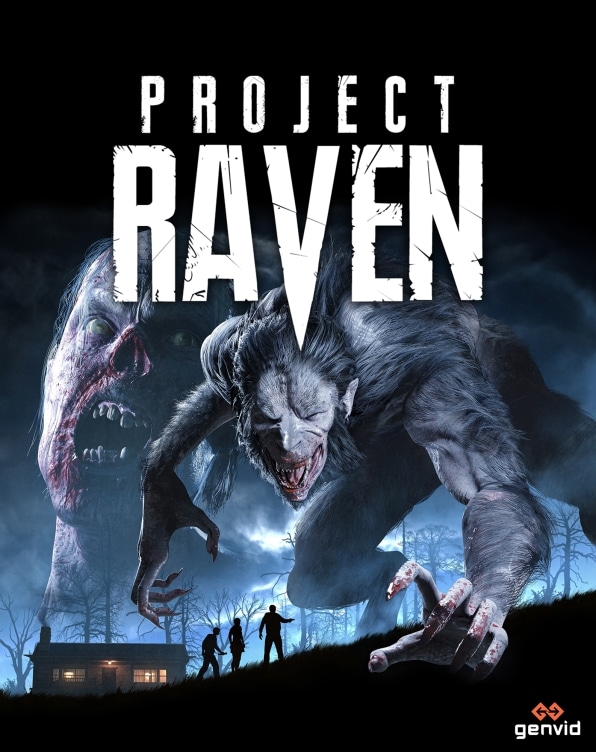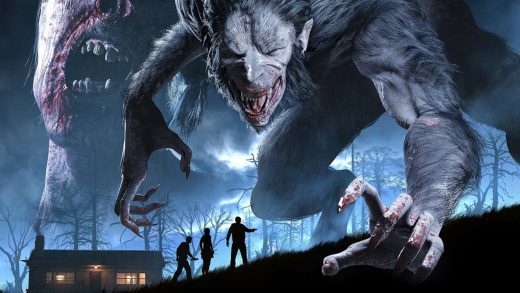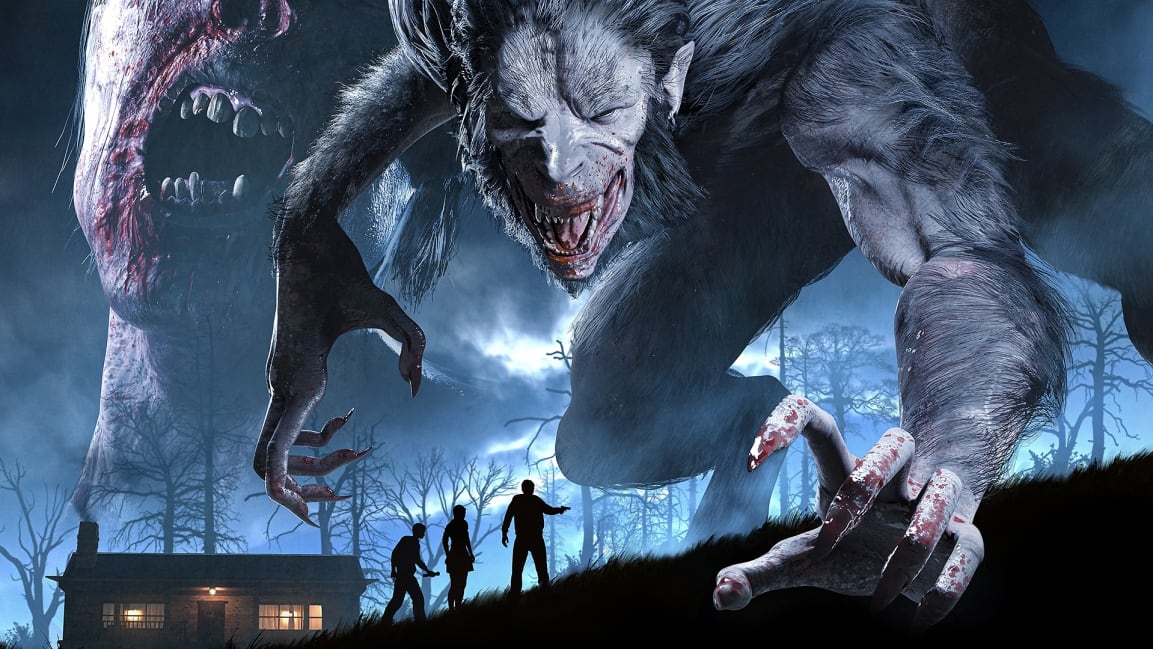This company is betting that the future of video games will be massive, interactive live events
When the interactive reality TV game Rival Peak debuted on Facebook Watch last December, it was a megahit. Users streamed the game—that allowed them to vote on how characters should act, thus influencing whether those characters would be eliminated in the Survivor-like competition each week—from across the globe, racking up over 100 million minutes of views during the first season.
For Genvid Technologies, the interactive streaming technology company that partnered with Facebook on Rival Peak—along with DJ2 Entertainment and Pipeworks Studios—the game was a proof of concept of sorts: There was an intense hunger for video games that allowed users not only to play a character in the game, but also become a part of the game’s narrative and affect how action unfolded by voting on characters’ behavior. The concept is part Choose Your Own Adventure, part Black Mirror: Bandersnatch, with a social component that only interactive streaming allows for. After all, even if millions of people stream Bandersnatch at the same time, they can’t interact with one another while they watch.
Now Genvid is building out that concept—which it dubs MILE, for Massive Interactive Live Events—and expanding the company into one that not only provides the technology, in the form of AI-powered cloud streaming, for interactive streaming games, but also creates the games themselves. Backed by a new, $113 million-round of series C funding (new investors include Third Point Ventures, Cobalt Capital, and LightShed Ventures) that brings the company’s total investment to $166 million, Genvid is creating a new division, Genvid Entertainment, that plans to produce and publish half a dozen MILEs over the next few years. All will be big-budget, multi-player experiences that will be built around IP franchises from movies, television, and comic books—though which franchises, exactly, have not yet been disclosed.
“The kind of data and interactions we saw from the audience (for Rival Peak) led us to believe there would be a very bright future for the production of this content,” said Genvid cofounder and CEO Jacob Navok. “Up until now we’d just been providing the tech and services around it. We found there was a gap in the market, from the creative direction to story writing to how you generate user engagement.”

To help the company navigate the intricacies of Hollywood storytelling, it’s hiring 80 people from the gaming and film and TV industries. Genvid has also tapped former Netflix VP of original content Cindy Holland as an advisor to oversee content strategy and acquisition. (Holland, an 18-year veteran of Netflix, abruptly left the company last September in a headline-grabbing shake-up.) Navok said that Holland was introduced to him by Rich Greenfield, the ubiquitous media analyst and LightShed Ventures partner, and that she is currently “reviewing the storylines for different products we have coming, and working with the teams building them to help improve those stories and think about them beyond the kind of limited game industry experience that I have.”
As a taste of what future Genvid games will look and feel like, the company created a concept trailer for a game, called Project Raven. The trailer opens like a horror film. A deep voice intones, “somewhere deep in the woods, an evil is lurking.” Characters sit aimlessly around a dark, creepy-looking cabin. A door creaks open. And then the characters set out into the woods on a scary journey. The idea is that players can stream the game 24-7 and follow individual characters, influencing their actions by working together via social devices like chatrooms to decide what the characters should do: open the door or not, and so forth. The game feels and flows like a TV show, with seamless, 3D animation and effects.

“What you see in Raven is, you’re actually going to play (the game). You’ll be able to solve puzzles and make decisions that will create points for yourself, and you’ll be able to use those points and create influence in the story,” says Navok. “So imagine you and I are playing. Each of us has about 100 points, and a storyline decision happens. Should the character go right or left? If they go left, one thing happens. If they go right, another thing happens. We can’t vote for it. I can’t vote left, you can’t vote right. We have to take the points we’ve generated and bid against each other, auction style, in order to make the decision. So you’re rewarded for playing. The more that you play and generate points, the more you’ll be the one who decides what happens in the story.”
Navok says this “will allow those people who chat on Reddit or Twitter while they’re watching a TV show in real time, giving their opinions, to put their money where their mouth is. Literally, by working together with their group, they can dominate a story line.
“This is completely different from any video game or TV show that’s come before. You can call in on American Idol and vote, but this is about communication. It’s about working together or against one another as a community. And it’s about the sheer scale at which you’re interacting,” he says.
Raven is the basis for an upcoming release by Genvid that Navok teased by saying it would be based on a popular horror franchise. (It’s easy to imagine something like The Walking Dead working within this format.) By tying the games to a known entity, the idea is that usage will spike even further, as people will want to hang out in a familiar environment and run into favorite characters, beyond just playing the game. This title could potentially be released as soon as this fall, and Genvid is speeding up its production pipeline by partnering with outside studios on game development, much in the way that the mobile game company Scopely has approached the business.
As for what platforms Genvid games will be on, Navok said he is “neutral” on the issue, and it will depend on the content buyer. Twitch, Facebook, and YouTube are all possibilities, as are proprietary websites.
Navok points to the Netflix series Black Mirror: Bandersnatch (which Holland worked on) as an example of the way he wants to marry new and old entertainment, but says that that series was ultimately limited by its format. “There are two things that Netflix doesn’t have that we have,” he says. “One, the live portion of it. They don’t have any live video. You can’t really do interactive without that. If you think about Rival Peak, there are an almost infinite number of possible outcomes because of the AI there that makes decisions based off users. There’s no way for you to pre-film that Bandersnatch-style. They film thousands of hours and then they cut it. You can’t do that here. The only way it works is if you’ve got a live video feed, users are making decisions, and there’s an algorithm that’s behind it that’s adjusting.”
Second, Netflix doesn’t have a social feature that allows viewers to simultaneously chat and work together as they watch. Navok said that when he worked at Square Enix Holdings, the Japanese video game company behind the Final Fantasy franchise, “we used to joke that (those games) were just visual chat rooms. The thing that people enjoy the most and what got them to spend money every month was the fact that they had friends they’d communicate with and chat with every night. If you don’t have that, it’s very hard to create interactive content that is engaging.”
(65)



